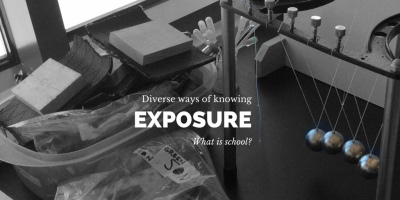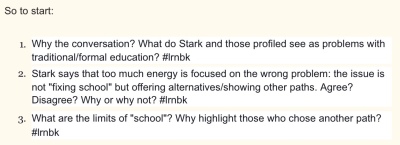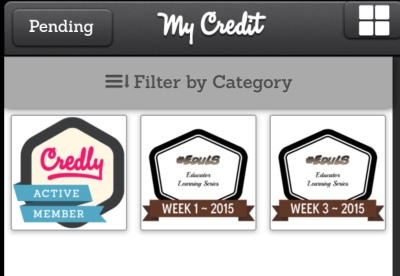PROLOGUE
"Got to pay your dues if you wanna sing the blues" -- R. Starr & G. Harrison
OUTTAKES
What is school? School is being exposed to diverse ways of knowing (and questioning everything).
My professional development journey went off on a tangent today. More often than not that's how I seem to learn best. What force launched me in a new direction? Questions 1 to 3 of a Twitter book club chat with the hashtag #lrnbk. The book? Kio Stark's Don't Go Back To School.Positive deviant that I am I may have tweeted my response too quickly and been misunderstood.
SENSE
Stark's writings make sense to me. One's development isn't, and shouldn't be, confined by walls, syllabi, or accreditation. I'll go a step further: Learning should know no constraints at all. Stark is saying there are constraints. The institutions of higher learning offer education on a range of topics. Employers require documentation that a specific type of learning has happened. Individuals need something to frame.
I've had several careers: electronics engineering, military service with the US Navy, programming multimedia, and learning and development. At heart I am a problem solver. Ms. Stark needs to restate the problem. I disagree with her about misfocused energy.
Consider what is happening in the K-12 space. Significant educational problems are being talked about and more.Educators are collaborating to make learning experiences better. Many of the people I meet there are actively involved in growing their know-how through exposure to diverse ways of knowing via higher education so that model of learning and development still works.
In the trenches there are teachers like Dave Burgess (@burgessdave) advocating for more engaging ways of presenting the learning experience. Teachers Erin Klein (@kleinerin) believe that the learning environment matters. Teachers like Don Wettrick (@donwettrick) are giving students the opportunity to choose their own path to learning. All one has to do is visit an #EdCamp to see this energy in action.
MAKING
I went through school in the 1960s and early 1970s. Back then learning was mostly rote memorization of facts and formulae. Worksheets figured in the learning process, too.
What are the limits of school? I think Stark is asking the wrong question. She needs to tweek its focus a little and ask what is school? One of Webster's definitions for school, the one I identify with the most, is "a source of knowledge." Maybe it's in a building. Maybe it's online. For me it's something that changes me: How I perceive the world around me. The change can and does happen any where at any time.I don't get why one would want to highlight those whom choose another path. They are everywhere.
- The coworker lamenting about a missed promotion
- The parent volunteering at their kid's school
- The supermarket cashier with a textbook tucked under her lunch bag
EPILOGUE
I have an M.S. Ed. I made a couple of tries for a Ph.D. before putting it on indefinite hold. You know what? It's hard. No, that's not it. Not really. It got to be uninteresting. Like one of Stark's highlights I chose a different path. And, whether you realize it or not, you have too.
I wonder what path today's K-12 students might choose?





No comments:
Post a Comment